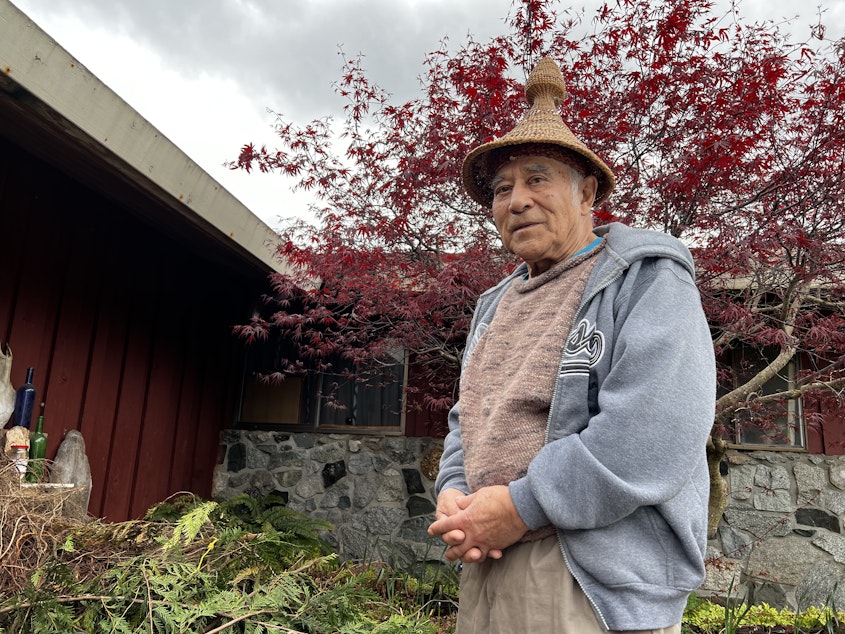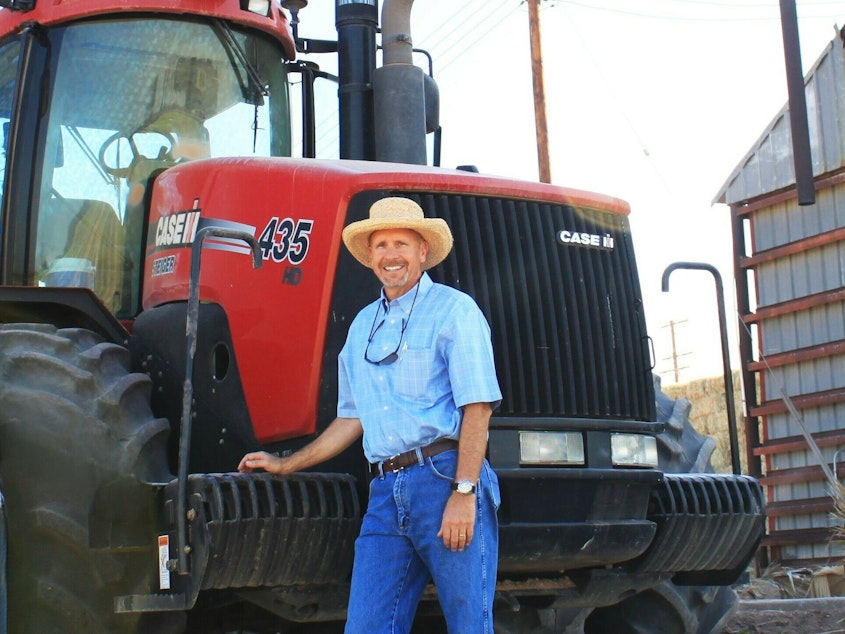What are we going to do about AI? Today So Far
- There's a lot of talk around artificial intelligence these days, from DC to the office.
- Former finance director pleads guilty to embezzling millions from Seattle nonprofits.
This post originally appeared in KUOW's Today So Far newsletter for May 18, 2023.
What are we going to do about artificial intelligence (AI)? People are already starting to think about that question, including folks in the AI business.
"This is a new twist — a tech CEO appearing before Congress saying, 'Regulate me,'" GeekWire's Todd Bishop told KUOW's Kim Malcolm.
That CEO was Sam Altman with OpenAI. He was questioned in front of Congress this week about the rise of AI and its potential impacts on society — like jobs, or even creating a false reality online. AI programs can do work only previously seen on the Enterprise, like when Lt. Commander Geordi La Forge would ask the computer to run a flight simulation, write a letter, or create an ideal love interest on the holodeck.
The U.S. government has a poor record when it comes to adapting to technological advances, especially in the computer age. Former Secretary of State Colin Powell has often spoken about upgrading his office's tech a couple years after being on the job. That would have been about 2003. At the time, the department was still using Wang computers (kids, ask your parents what a Wang computer was ... and parents, turn around and ask your own parents what a Wang computer was). He got upgraded computers for the Secretary of State's Office with crazy new capabilities ... like the internet. This all happened about four years after "The Matrix," five years after "You Got Mail," more than a decade after the general public went online, and 20 years after "War Games."
This is just one corner of government history, but perhaps lessons like this are behind why there is now an effort in DC to develop AI regulations, before it's too late. A bipartisan group of senators is currently forming a coalition around this single issue.
One big question is whether AI will replace jobs, or simply become part of the work process. For example, Bishop says he uses AI for his work at GeekWire.
"When I'm writing a story, I'll put the draft into ChatGPT and say, 'proofread this for me, tell me if this matches Associated Press style, tell me if I've misspelled any words, or if I could improve the grammar.' And it's remarkable what you get back from ChatGPT in terms of polishing," he said.
On the flip side of that coin is the potential for companies to bypass reporters and writers altogether and use AI to produce a range of content. At least, that is the concern / debate among journalist circles these days. Personally, I don't think every media company will do this ... but somebody is going to do this. So far, we know that ChatGPT can't write this newsletter. Beyond this, AI could also be used to write computer code or produce works of art. It could even, potentially, manufacture a false online reality and influence everyday users. Call me old fashioned, but I believe that only humans should be allowed to create false realities on social media.
Microsoft seems to believe that there is no getting around AI. It has invested $13 billion into the OpenAI company. In a recent work trends report, Microsoft noted that job listings on LinkedIn that mention "ChatGPT" or "AI" have shot up nearly 80% over the past year. Goldman Sachs economists have estimated that AI could replace two-thirds of jobs in the USA and Europe. As KUOW's Monica Nickelsburg reports, Microsoft has a more optimistic view around all this, and expects AI to become part of the workflow, helping out with meetings, emails, and keeping up with data. The tech giant has its fingers crossed that AI will boost productivity in the end.
Will AI ultimately take over our jobs, or will it become part of our workflow the same way the laptop has, or email? There are a lot of ways this AI future can play out. It could be like "Her," "Blade Runner," or even "The Terminator." Only time will tell, but at this point I figure one thing is certain — somebody is eventually going to fall in love with a computer.
I'm not smart enough to get away with any serious criminal activity, but still, I'd say that using a company card to spend millions of dollars at a casino would likely raise some red flags. And red flags are not what you want when you're embezzling $3 million from prominent nonprofits.
That's the gist of what Susana Tantico pleaded guilty to this week. She headed up the finance department at Seattle's Country Doctor, a medical service focused on underserved communities. She worked there from 1999 to 2020. She also worked for Community Passageways from 2011 to 2020. Tantico admitted to using company cards to pay for everything from gambling, clothing, travel, and more for herself and family. She also admitted to cooking the books to hide the spending.
Most of the money, $2.3 million, was taken from Country Doctor, which uncovered suspicious financial activity after Tantico had left the organization. The FBI was informed, and an investigation led to charges and the guilty plea this week. That's all part of a larger story, which KUOW's Amy Radil has here.
AS SEEN ON KUOW

Ed Carriere pictured in front of his house in Indianola. Carriere has made thousands of baskets since he first learned from his great grandmother, Julia Jacobs. He's wearing a hand-woven hat he made in the style of New Zealand weavers. Carriere is a Suquamish elder and master basket maker in Indianola, on the Kitsap Peninsula. He's one of nine people recently selected for a Heritage Fellowship. (Alec Cowen / KUOW)
DID YOU KNOW?
I went down a bit of a rabbit hole when I started looking up barbecue information, aka "barbeque," aka "bar-b-q," aka "BBQ." People have been making charcoal for thousands of years, and everybody across the planet has long been cooking meats over a brazier or grill of some kind. But I was surprised to find that our modern, commercialized tradition of barbecue arguably comes from some unlikely sources. You know, the classic round grill with fiery charcoal briquettes.
As the legend goes, George Stephen was a welder at Weber Brothers Metal Works in Chicago back in 1952. The company specialized in making round marine buoys. Stephen took one bouy, cut it in half, added some air holes, put it on some legs, and used it as a grill. It was nicknamed "sputnik." That quickly evolved into the popular backyard Weber grill. It wasn't the first backyard grill ever invented. There were gas grills and others around that time. But a backyard BBQ trend was taking off, so the timing was perfect.
Another unlikely source helped push charcoal briquettes onto store shelves — the Ford Motor Company. The early 1900s Model T used a lot of hardwood in its construction. That meant there was a lot of wood scraps left over. Henry Ford's relative, Edward Kingsford, proposed to take those scraps, turn them into charcoal, and market them as fuel. It was a side product. Ford built a charcoal factory next to its Model T plant in Michigan (side note: that charcoal plant was designed by Thomas Edison). A company town emerged around these operations, and was named "Kingsford." Ford charcoal eventually became the Kingsford brand we are familiar with today.
Over the years, these products collided at the store, and bam, we all now have a common cultural reference for 90% of the setting for the show "The Unicorn," most endings to "Fast and Furious" films, "Boyz n the Hood," and more.
ALSO ON OUR MINDS

Arizona's farms are running out of water, forcing farmers to confront climate change
Farmers across southern Arizona are among those in the West facing the brunt of climate change. The drought, worsening fire seasons, temperature swings and monsoons all impact their businesses, food production, utility costs and livelihoods.

